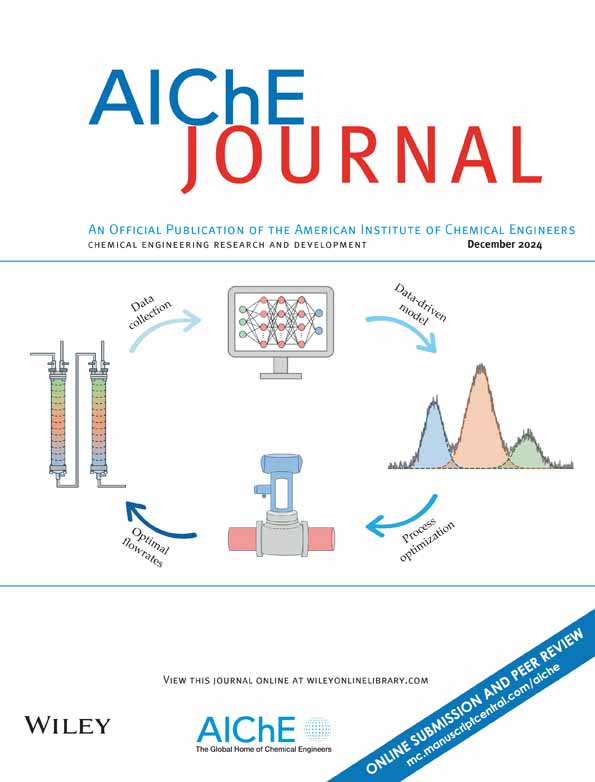采用数据驱动方法的集成合成和结晶过程的数字化设计和优化
IF 4
3区 工程技术
Q2 ENGINEERING, CHEMICAL
引用次数: 0
摘要
本研究提出了一种以流动合成和连续结晶为重点的连续制药集成环节的数据驱动建模和多目标优化框架。为了解决产品质量、效率和环境影响之间的数据稀缺性和权衡问题,该框架结合了生成对抗网络(gan)、人工神经网络(ann)和遗传算法(GAs)。集成的双gan (ID-GAN)在物理化学约束下生成数据,这些数据与实际数据合并,以训练具有15%-20%平均绝对误差的ANN,包括粒度、生产率和可持续性吞吐量指数。然后将人工神经网络与遗传算法相结合,根据用户定义的目标和约束来识别帕累托最优解。案例研究验证了该框架的能力,通过系统地探索竞争目标之间的权衡来促进过程设计决策,强调了其在连续制造系统中关键单元数字化中的潜在效用。本文章由计算机程序翻译,如有差异,请以英文原文为准。
Digital design and optimization of the integrated synthesis and crystallization process using data-driven approaches
This study presents a data-driven modeling and multi-objective optimization framework for an integrated section of continuous pharmaceutical manufacturing, focusing on flow synthesis and continuous crystallization. To address data scarcity and trade-offs among product quality, efficiency, and environmental impact, the framework combines generative adversarial networks (GANs), artificial neural networks (ANNs), and genetic algorithms (GAs). An integrated dual-GAN (ID-GAN) generates data under physicochemical constraints, which are merged with real data to train an ANN with 15%–20% mean absolute errors for particle size, productivity, and a sustainability throughput index. The ANN is then coupled with a GA to identify Pareto-optimal solutions based on user-defined objectives and constraints. Case studies validate the framework's capability to facilitate process design decisions by systematically exploring trade-offs among competing objectives, underscoring its potential utility in the digitalization of critical units within continuous manufacturing systems.
求助全文
通过发布文献求助,成功后即可免费获取论文全文。
去求助
来源期刊

AIChE Journal
工程技术-工程:化工
CiteScore
7.10
自引率
10.80%
发文量
411
审稿时长
3.6 months
期刊介绍:
The AIChE Journal is the premier research monthly in chemical engineering and related fields. This peer-reviewed and broad-based journal reports on the most important and latest technological advances in core areas of chemical engineering as well as in other relevant engineering disciplines. To keep abreast with the progressive outlook of the profession, the Journal has been expanding the scope of its editorial contents to include such fast developing areas as biotechnology, electrochemical engineering, and environmental engineering.
The AIChE Journal is indeed the global communications vehicle for the world-renowned researchers to exchange top-notch research findings with one another. Subscribing to the AIChE Journal is like having immediate access to nine topical journals in the field.
Articles are categorized according to the following topical areas:
Biomolecular Engineering, Bioengineering, Biochemicals, Biofuels, and Food
Inorganic Materials: Synthesis and Processing
Particle Technology and Fluidization
Process Systems Engineering
Reaction Engineering, Kinetics and Catalysis
Separations: Materials, Devices and Processes
Soft Materials: Synthesis, Processing and Products
Thermodynamics and Molecular-Scale Phenomena
Transport Phenomena and Fluid Mechanics.
 求助内容:
求助内容: 应助结果提醒方式:
应助结果提醒方式:


